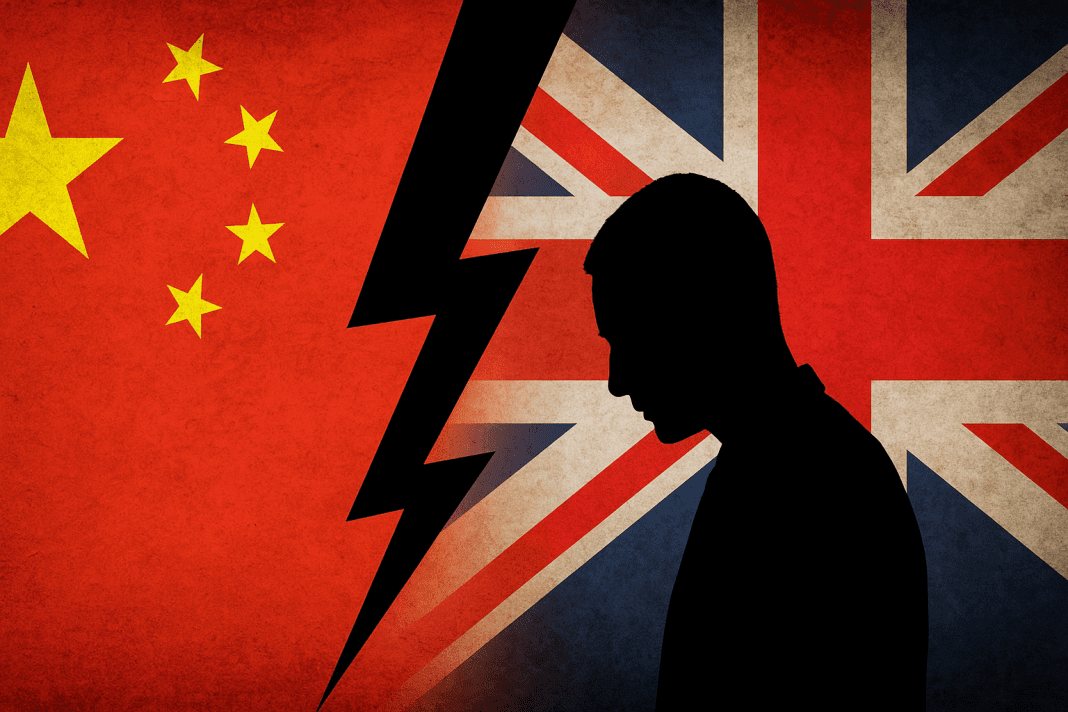China has warned the United Kingdom that it could retaliate if British ministers take steps to apply stricter rules on foreign influence targeting Chinese entities. The warning of possible retaliation came shortly after reports suggested that the UK government was considering including parts of China’s security and political system in an enhanced tier of the country’s foreign influence registration scheme.
China Issues Warning Over UK Security Measures
The Foreign Office reportedly received a message from Chinese officials cautioning that any such move would have negative consequences for diplomatic and economic relations. The warning of potential retaliation has raised concerns given that, so far, the UK has not applied enhanced rules to Chinese lobbyists or representatives, unlike its approach to Russia and Iran.
The foreign influence registration scheme (FIRS) was introduced in July and came fully into force this month. It requires anyone acting on behalf of a foreign power in the UK to declare their activities or face criminal penalties. The enhanced tier specifically targets countries and entities deemed higher risk, requiring more detailed disclosure. For Russia and Iran, violations of the enhanced tier rules carry a potential prison sentence of up to five years.
China torn as Saudi-Pakistan military pact risks tilting Middle East power balance
UK ministers were reportedly considering placing certain Chinese entities under this enhanced tier. These include the Ministry of State Security, China’s intelligence agency; the Chinese Communist Party (CCP); the United Front Work Department, which operates internationally; and the People’s Liberation Army, China’s military.
Government sources emphasized that the designations under FIRS are under continuous review, and officials have been closely monitoring any potential foreign influence from China. The warning of retaliation is a clear signal of Beijing’s readiness to respond to perceived threats.
Espionage Case Highlights Tensions and Retaliation Concerns
A recent espionage trial has highlighted tensions between the UK and China. Prosecutors had accused two Britons, including a former parliamentary aide, of passing sensitive information to China. The trial was scheduled to begin in September, but prosecutors dropped the case after determining that the evidential standard was no longer met.
The accused allegedly shared information that could benefit the Chinese state. Some reports claimed that the government had hesitated to officially designate China as an “enemy” in court evidence, which contributed to the trial’s collapse. However, government sources stated that they did not withdraw or alter any evidence and did not pressure prosecutors.
China accused of weaponizing students to police UK university discussions
Prosecutors argued that one of the accused wrote numerous reports, some related to UK politics, for a person they assessed as linked to Chinese intelligence. The accused’s allies maintained that he shared only publicly available political material or personal analyses. The Crown Prosecution Service continuously reviewed the case and ultimately dropped it because it determined that the evidence did not meet the required standard.
The espionage case has added to concerns about possible retaliation by China, as the UK balances enforcement of foreign influence rules with ongoing diplomatic relations.
Diplomatic Engagements Continue Amid Retaliation Warnings
In recent months, the UK government has taken steps that signal a warming of relations with China. Senior officials from the Foreign Office have held high-level meetings regarding diplomatic access, including discussions on allowing the Chinese ambassador entry into UK parliament in exchange for Beijing lifting certain sanctions on UK lawmakers.
Several government officials have traveled to China for official talks, focusing on trade and security cooperation. The national security adviser and the business secretary have visited China and negotiated with Chinese authorities over the past few months.
China blasts UK’s ‘China audit’ as malicious slander in explosive rebuttal
Despite these engagements, China’s warnings of retaliation indicate that tensions remain high over security and espionage concerns. UK officials continue to face pressure to enforce foreign influence rules appropriately while balancing diplomatic considerations.
The government actively monitors developments and regularly reviews and updates the designations in the foreign influence registration scheme based on risk assessments. Meanwhile, diplomatic channels remain active between the UK and China to manage the delicate situation and prevent escalation or retaliation.
China’s repeated threats of retaliation, combined with the espionage trial and FIRS discussions, highlight the fragile state of current UK-China relations.
